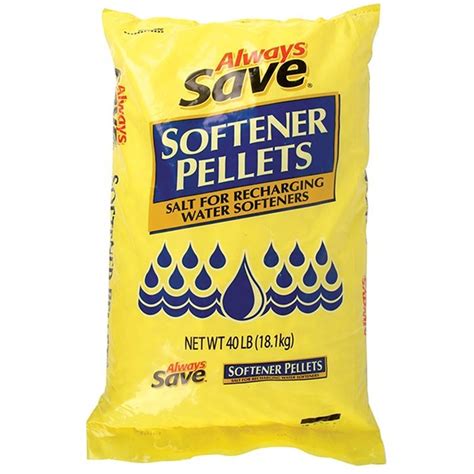Save Money on Salt: Mastering Your Water Softener
Hard water. That frustrating mineral buildup that leaves your dishes spotty, your hair feeling dull, and your appliances struggling. The solution? A water softener. But while a water softener significantly improves your quality of life, the ongoing cost of salt can be a hidden expense. This comprehensive guide will help you master your water softener and drastically reduce your salt consumption, saving you money and extending the lifespan of your system.
How Much Salt Does a Water Softener Use?
The amount of salt a water softener uses depends on several factors:
- Water Hardness: The harder your water, the more salt your softener needs to regenerate. Regular water testing is crucial to understand your water's hardness level.
- Softener Size: Larger softeners can handle more water and typically require more salt per regeneration cycle.
- Household Size: A larger household with more water usage will naturally consume more salt.
- Regeneration Frequency: This is where you have the most control. We'll delve into optimizing this later.
- Salt Type: While most softeners use standard water softener salt, using the correct type is essential. Avoid using table salt or rock salt as these can damage the system.
Understanding the Regeneration Process
Water softeners work by exchanging hard water minerals (calcium and magnesium) with sodium ions. The resin beads within the softener become saturated with these minerals over time. Regeneration is the process where salt is used to flush these minerals away and recharge the resin beads, restoring the softener's capacity to soften water.
How to Reduce Salt Usage During Regeneration
Here’s where you can significantly impact your salt consumption:
- Optimize Regeneration Settings: Most modern water softeners allow you to adjust the regeneration cycle frequency and the amount of salt used per cycle. Experiment (within recommended parameters) to find the sweet spot that balances softened water quality with salt usage. Don't be afraid to consult your owner's manual.
- Demand-Initiated Regeneration: Some advanced models offer "demand-initiated regeneration," which means the softener only regenerates when necessary, based on actual water usage. This is often the most efficient approach.
- Avoid Over-Salting: Using more salt than necessary doesn't improve performance; it's simply wasted salt. Follow the manufacturer's instructions and the recommendations based on your water hardness level.
- Regular Maintenance: A clogged brine tank or faulty valve can lead to excessive salt usage. Regular cleaning of the brine tank (removing clumps and dissolving any stuck salt) and routine maintenance checks are key.
What Type of Salt Should I Use?
Use only water softener salt, also known as evaporated salt or solar salt. This salt is specifically formulated for water softeners and is free from additives that can damage the system. Avoid table salt, rock salt, or other types of salt.
Choosing the Right Salt: Size Matters
Salt comes in different grain sizes. Generally, coarse-grained salt is preferred for water softeners. It dissolves more slowly, minimizing bridging (the formation of salt clumps that prevent proper dissolution). Finer salt can dissolve too quickly, leading to potential waste.
How Often Should I Check My Salt Level?
Regularly checking your salt level is crucial. Most softeners have a clear brine tank allowing visual inspection. Aim to maintain a sufficient salt level at all times (usually a minimum of half-full) to prevent unexpected interruptions in soft water supply.
H2: Can I Use Less Salt and Still Have Soft Water?
Yes, but only to a certain extent. Using significantly less salt can compromise the effectiveness of your water softener, leading to hard water spots and mineral buildup. Find the optimal balance through adjustment and monitoring.
H2: My Water Softener Uses Too Much Salt—What Should I Do?
Several factors contribute to excessive salt consumption: a faulty valve, a clogged brine tank, incorrect settings, or simply overly frequent regeneration. Contact a qualified water softener technician to diagnose and resolve the issue. Don't try to fix complex issues yourself.
H2: How Can I Save Money on Salt Long-Term?
Buying salt in bulk often offers cost savings. Consider purchasing larger bags or exploring options from different suppliers to find the best value for your needs.
By understanding your water softener and following these tips, you can significantly reduce your salt consumption, saving money and keeping your system running efficiently. Remember, regular maintenance and monitoring are key to maximizing your savings and ensuring consistent soft water throughout your home.

